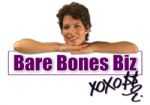Filing taxes can be such a daunting and overwhelming task. And with the Tax Day filing deadline looming just around the corner, many business owners are feeling a sense of panic and dread start to set in.
So, to help ease some of this panic, I have asked the CarolRoth.com contributor network of entrepreneurs and experts to give their best tips or best practices for filing taxes in business. Their answers are presented below in no particular order.
You may notice some similar insights, but I kept the concepts separate, as something in the way one is framed may resonate differently with you.
*Please note, this blog should not be taken as tax advice. These are suggestions for you to look further into and you should consult with a CPA to see if the advice applies to you.

1. Don't Do it Alone!
My best tip for all the entrepreneurs is to be sure you have a CPA/CTEC do your taxes. Most of the entrepreneurs that I know that tried to file alone: 1. missed several legal deductions
2. were a red flag to the IRS; the IRS likes when someone tries it alone- most get audited.
We keep a file of receipts for the year of everything we do and we also adjust my husband's W9 to reflect single and 0, so they take more taxes and we pay less. Document everything so your filing is clean.

2. Watch Out for Those Decisions
Some of the best advice is to use a qualified business tax attorney. Make sure they give sound advice and if you are not sure about anything they say, get a second opinion. Being organized with your receipts and bookkeeping is essential. If you work at home, be careful of the home based deductions, as it is highly audited. If you have a room dedicated only to your business and have a separate door for clients to use, then it may be worth fighting for this deduction.

3. Charity Begins at Home
Every business person I know works miracles for a variety of charities in their arena. Many give money, products, services, employee time and use of their facilities. Too often, come tax time, these gifts have not been appropriately documented as charitable gifts. More importantly, the business person's own time and mileage has not been recorded as tax deductible. Yes, paying it forward is something we all should do, but please make sure to tell the tax man of your generosity!

4. Ahead of the Gang
We pre-plan each year to compile all receipts, tax documents and information the last week of the year and have our taxes filed no later than March of each year. Pre-planning allows you to compile, recover and collect your documents in a relaxed state, without rushing and possibly losing money due to missed information. Secondly, statistics have shown that businesses that wait to the last minute or April deadline to file taxes are more likely to be targeted for review audits by the IRS.

5. Bet You Missed This One
If you do research and development or even develop a new program, CD or product, you can qualify for this generally missed deduction. A contact of mine has a company that specializes in recovering over payments to the IRS because they never deducted RD costs. They earn millions every year on a small percentage of funds recovered! Check into this before you file; surprise yourself on what you can deduct as R&D. Time, material, travel, books, etc. may all qualify.

6. Deduct Electricity Expenses
If you're an at-home entrepreneur, you'll benefit from deducting parts of your electricity bill (used for business). Since you'll be spending a lot of money on energy working from home, those costs associated with your business may qualify.

7. Eating Out Could Devour You
Taking clients to lunch or dinner has been a great way to discuss business for years. The problem is, sometimes things go a little overboard. You might get away with it, but you might trigger someone to look into your spending a bit more. If you're eating out on the company's dime on a daily basis or the check is through the roof, it might be difficult to justify. Most of us have heard of companies or solo practitioners who have gotten in trouble for this. Don't let it be you.

8. Claim that Mileage!
According to our accountant, claiming mileage is one of the most overlooked reimbursable expenses for small businesses. You'd be surprised just how many business-related miles you put on your car...even when you work from home. We've started using Expensify.com as a way to track, submit and reimburse ourselves for our mileage. And it easily exports into Quickbooks. It makes claiming your mileage a real no brainer.

9. CPA - Former IRS Auditor
Hire a CPA who is a former IRS Auditor. He or she will know the ins and outs of what triggers IRS audits and can save you a bundle in the long run.

10. Keep it in the Car
It's so easy to lose a receipt or not remember a trip you've taken, Keep an envelope in the car and put every receipt in it. When the envelope is full (or before your bookkeeper arrives) bring the contents of envelopes into your office. Then, have your bookkeeper pull out what's deductible. Keep a pad in the car to write all of the day's business trips. You're bound to get extra business mileage because you logged in a side trip that you soon would have forgotten!

11. Have a Pro Do Your Taxes
Have a Pro do your taxes. Don’t spend your time stepping over a dollar to pick up a dime. You will probably ball it all up. Just like any other professional service, the money is worth it if you get a good accountant. So…
*Look for someone tidy…borderline obsessively fastidious.
*Don’t tolerate a “martyr” or an “intimidator.” It’s your money and they work for you.
*Get a recommendation from a couple of rich, successful friends and/or business associates.

12. Disaster Losses = Tax Gain
Businesses can qualify for benefits under the National Disaster Relief Act of 2008. The act allows businesses that suffered losses in a nationally declared disaster to:
--deduct certain qualified disaster cleanup expenses;
--deduct 50% of the cost of qualifying property in addition to the regular depreciation allowance that is normally available; and
--increase the limits that an affected business taxpayer can expense for qualifying section 179 property.

13. SEP IRA Tax Deduction
Open and contribute to a SEP IRA before you file your business taxes. The Simplified Employee Pension (or SEP) IRA is a retirement account for small business owners and their employees. If you contribute to one before you file your taxes this year, then you'll be able to deduct your SEP IRA contributions (up to IRS limitations) on your 2010 tax return.

14. You're Late with Your Tax Plan
Tax Planning for 2011 BEGAN in January.
For all of you who throw all the receipts in a bag and head over to your accountant, you are too late to do any tax planning for 2010, and you're already late getting started on your 2011 tax plan. Tax planning is NOT tax preparation. Once the end of your fiscal year occurs (usually December 31st for most small businesses) you cannot make changes to the outcome of your 2010 tax return. Thus, tax preparation is nothing more than reporting history.

15. Turn Tax Time into a Game
No one likes taxes, but everyone loves to have fun. Sponsor a tax deduction contest. You can use your blog, Twitter, or even Facebook. Offer one of your products or services to the person who suggests the biggest tax deduction you missed. Even the best CPA doesn't have ESP, which means you need to ferret them out and share today. Don't overlook the household t(w)een as a resource. You might be surprised what they can find for a $50 iTunes card.

16. Organized Swiper
The great thing about using your debit card is that once your card is swiped, it automatically goes to a bank statement, helping you keep great financial records. It's better to swipe your card now than have to wipe your tears later when you can't find receipts.

17. External Shareholders Alert
Did you know that our organization has a brochure called "Is It Too Good To Be True?" put out not by the Bali Tourism Bureau but our own IRS? You will find it on their website, IRS.GOV, in a section dedicated to small business and the self-employed, called Filing Season Central. While you won't see Bon Jovi in a video or agents singing "I'll Be Watching You", Filing Season Central is full of everything a small business could use to assure good standing with the organization. Happy filing!

18. Deduct Your Home Office?
• Do you use your home office “exclusively and regularly” as your principal place of business?
• Do you use your home office “exclusively and regularly” to meet with clients or patients?
• Do you run a home day care service?
• Are you in a direct sales position? Do you store inventory there?
• Does your employer authorize your home office as necessary for the company’s convenience?
Do you have another tax filing tip that wasn’t included? If you do, please share it below. And as always, many thanks to everyone that contributed to this article!



















